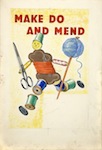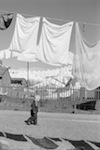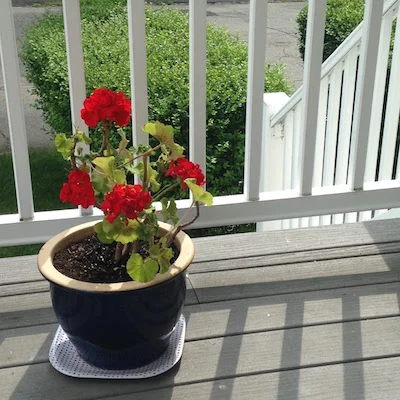I have not liked it here, and I’ve felt guilty about not liking it here: I know I should be grateful for a roof over my head, a safe and warm place to sleep, enough money to pay the rent and other bills. I know we were lucky to have six years in our previous place, and to leave it on good terms. Yet I’ve missed the old place and struggled to find reasons to love the new. It has not felt like home, though we’ve adjusted, done our best to make it work. But now, ironically, as we prepare to leave, I’m realizing what I have liked, even loved, about this place.
What Light There Is
I have become, in the past few years, a seeker of the light. Now that it doesn’t pour over my shoulders each day, unasked and abundant, I’ve learned to keep an eye out for it. I can’t make it appear, but I still crave it, and I am learning to watch for—and appreciate—what light there is.
 As spring approaches in Cambridge, I’m switching over to (another) new workplace. My daily routine is shifting again, as the afternoon light grows stronger and the tulips poke up through the ground. But as I adjust to my new rhythm, I know I’ll be continuing my daily trips to Darwin’s. Because it’s delicious and homey and comforting. Because my blood, on some days, is about 20 percent spicy chai. Because I’m a regular. Recognized, welcomed, known. And it feels good.
As spring approaches in Cambridge, I’m switching over to (another) new workplace. My daily routine is shifting again, as the afternoon light grows stronger and the tulips poke up through the ground. But as I adjust to my new rhythm, I know I’ll be continuing my daily trips to Darwin’s. Because it’s delicious and homey and comforting. Because my blood, on some days, is about 20 percent spicy chai. Because I’m a regular. Recognized, welcomed, known. And it feels good.
 My mother was doubtful, my sister surprised, my friend Abigail wistful. “You’re so brave,” she said. I’m fairly certain they all expected me to be nervous about spending three days in the city alone. But I could hardly keep the glee out of my voice.
My mother was doubtful, my sister surprised, my friend Abigail wistful. “You’re so brave,” she said. I’m fairly certain they all expected me to be nervous about spending three days in the city alone. But I could hardly keep the glee out of my voice.
 So, this winter, I’m finding it worthwhile — even necessary — to name the things that are saving my life. Sometimes I scribble down a list in my journal (a gift from my sister last Christmas, and itself a lifesaver). Sometimes I take the time to write a blog post, with pictures of those purple tulips or a brave blue winter sky. Most often, I’m trading daily texts with my friend Laura, both of us doing our best to find and name the things that are saving our lives. The act of naming them often becomes a lifesaver, a welcome glimpse into the brighter side of this world.
So, this winter, I’m finding it worthwhile — even necessary — to name the things that are saving my life. Sometimes I scribble down a list in my journal (a gift from my sister last Christmas, and itself a lifesaver). Sometimes I take the time to write a blog post, with pictures of those purple tulips or a brave blue winter sky. Most often, I’m trading daily texts with my friend Laura, both of us doing our best to find and name the things that are saving our lives. The act of naming them often becomes a lifesaver, a welcome glimpse into the brighter side of this world.
 I am always seeking to hone my technique, to generate new and creative ideas, to find a different way of looking at the world. But like the construction workers, I have to build on what’s already there. I have to strike a balance, uneasy though it may be, of honoring the strength of the old, and creating a little chaos to bring in the new.
I am always seeking to hone my technique, to generate new and creative ideas, to find a different way of looking at the world. But like the construction workers, I have to build on what’s already there. I have to strike a balance, uneasy though it may be, of honoring the strength of the old, and creating a little chaos to bring in the new.
 The romance of snow-dusted rooftops and tree branches limned with white becomes much less lovely when bitter winds whip down your street, or clumps of grime-encrusted slush collect at the corners of city streets. For those of us who have to live through winter, going to work and the gym and the grocery store as usual, “a mind for winter” must be developed when we’re outside as well as inside.
The romance of snow-dusted rooftops and tree branches limned with white becomes much less lovely when bitter winds whip down your street, or clumps of grime-encrusted slush collect at the corners of city streets. For those of us who have to live through winter, going to work and the gym and the grocery store as usual, “a mind for winter” must be developed when we’re outside as well as inside.
 I use it sometimes now, when it’s my turn to bless our food before dinner and I am tired or worried or simply can’t think of anything to say. The familiar rhythm of the words comforts me, carrying with it echoes of the many people who have prayed it before me, and those who still pray it around their tables. It brings me back to those summer days at Mimi and Papaw’s, standing barefoot on the kitchen tile, hand-in-hand with the people I loved the most. Now, as I face my husband across our own dinner table, it sums up everything I want to say:
I use it sometimes now, when it’s my turn to bless our food before dinner and I am tired or worried or simply can’t think of anything to say. The familiar rhythm of the words comforts me, carrying with it echoes of the many people who have prayed it before me, and those who still pray it around their tables. It brings me back to those summer days at Mimi and Papaw’s, standing barefoot on the kitchen tile, hand-in-hand with the people I loved the most. Now, as I face my husband across our own dinner table, it sums up everything I want to say:
Come, Lord Jesus, be our guest, and let this food to us be blessed.
 Mending is neither glamorous nor easy, but I’ve discovered it can be a calming antidote to the frantic pace of my everyday life. It requires me to stop in the middle of commitments — a day job and a marriage and freelance assignments — and commutes to focus on one small, tangible thing. There is satisfaction in threading a needle with just the right color of thread and making tiny, precise stitches to close a hole or hold a seam together. I’m always amazed by the strength of those stitches and the sense of accomplishment I feel afterward.
Mending is neither glamorous nor easy, but I’ve discovered it can be a calming antidote to the frantic pace of my everyday life. It requires me to stop in the middle of commitments — a day job and a marriage and freelance assignments — and commutes to focus on one small, tangible thing. There is satisfaction in threading a needle with just the right color of thread and making tiny, precise stitches to close a hole or hold a seam together. I’m always amazed by the strength of those stitches and the sense of accomplishment I feel afterward. Sorting the clothes on the floor of our bedroom, piling them into the hamper, measuring out the detergent and tossing the pieces one by one into our washing machine: this is how I know I’m home. The jerks and thumps of the washing machine, the pause just before the spin cycle, even the obnoxious beep of the dryer: these noises sound like home to me. Doing laundry means I am back in the place where my soul rests, the place where I can marshal my forces, and also lie down and sleep in peace.
Sorting the clothes on the floor of our bedroom, piling them into the hamper, measuring out the detergent and tossing the pieces one by one into our washing machine: this is how I know I’m home. The jerks and thumps of the washing machine, the pause just before the spin cycle, even the obnoxious beep of the dryer: these noises sound like home to me. Doing laundry means I am back in the place where my soul rests, the place where I can marshal my forces, and also lie down and sleep in peace. But this is merely an anniversary, a pause along the path. We are no longer at the beginning, nor are we quite at the end. We are in the middle, the place where everything happens before you know why it does.
But this is merely an anniversary, a pause along the path. We are no longer at the beginning, nor are we quite at the end. We are in the middle, the place where everything happens before you know why it does.















